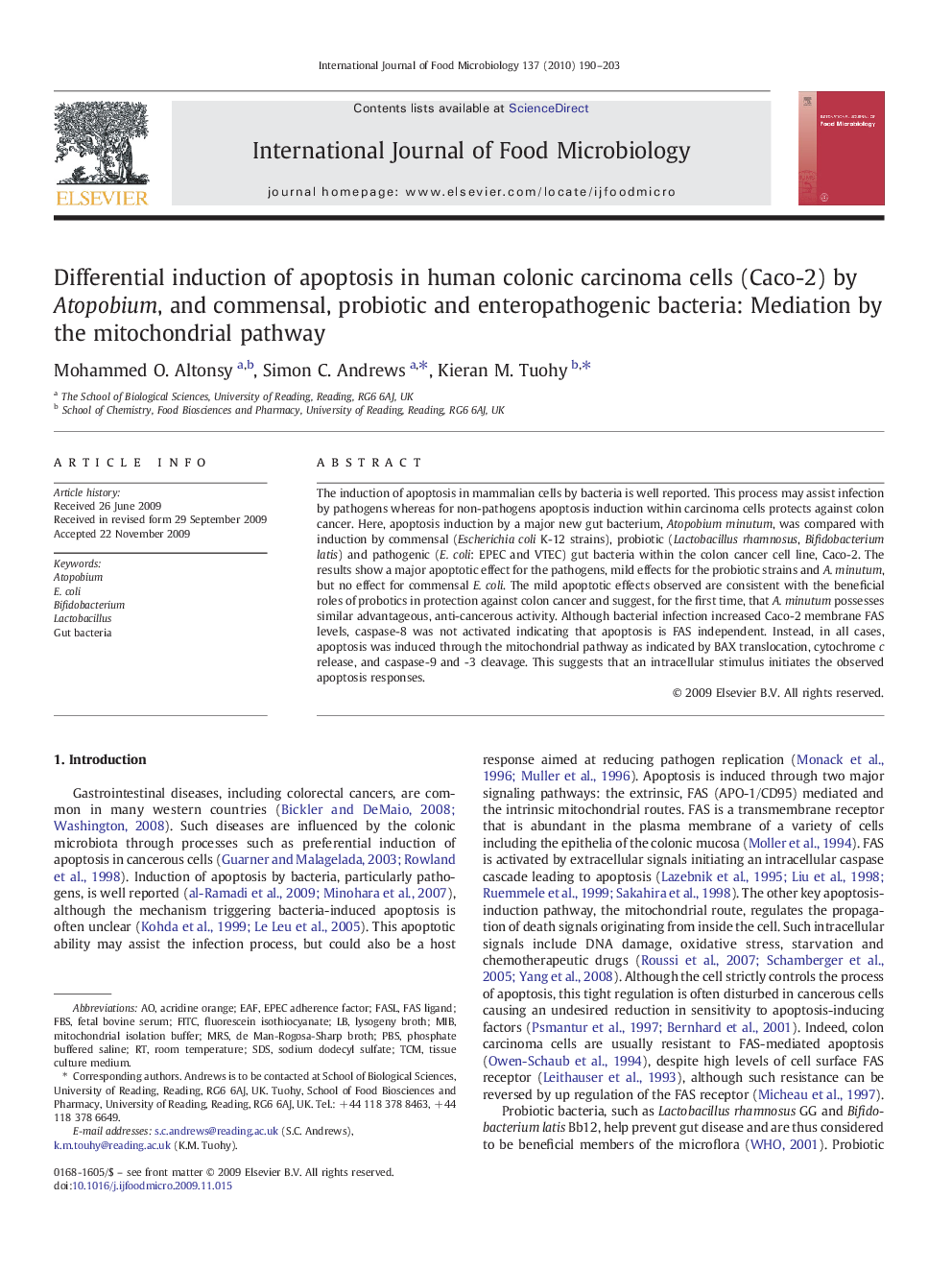| Article ID | Journal | Published Year | Pages | File Type |
|---|---|---|---|---|
| 4369100 | International Journal of Food Microbiology | 2010 | 14 Pages |
The induction of apoptosis in mammalian cells by bacteria is well reported. This process may assist infection by pathogens whereas for non-pathogens apoptosis induction within carcinoma cells protects against colon cancer. Here, apoptosis induction by a major new gut bacterium, Atopobium minutum, was compared with induction by commensal (Escherichia coli K-12 strains), probiotic (Lactobacillus rhamnosus, Bifidobacterium latis) and pathogenic (E. coli: EPEC and VTEC) gut bacteria within the colon cancer cell line, Caco-2. The results show a major apoptotic effect for the pathogens, mild effects for the probiotic strains and A. minutum, but no effect for commensal E. coli. The mild apoptotic effects observed are consistent with the beneficial roles of probotics in protection against colon cancer and suggest, for the first time, that A. minutum possesses similar advantageous, anti-cancerous activity. Although bacterial infection increased Caco-2 membrane FAS levels, caspase-8 was not activated indicating that apoptosis is FAS independent. Instead, in all cases, apoptosis was induced through the mitochondrial pathway as indicated by BAX translocation, cytochrome c release, and caspase-9 and -3 cleavage. This suggests that an intracellular stimulus initiates the observed apoptosis responses.
